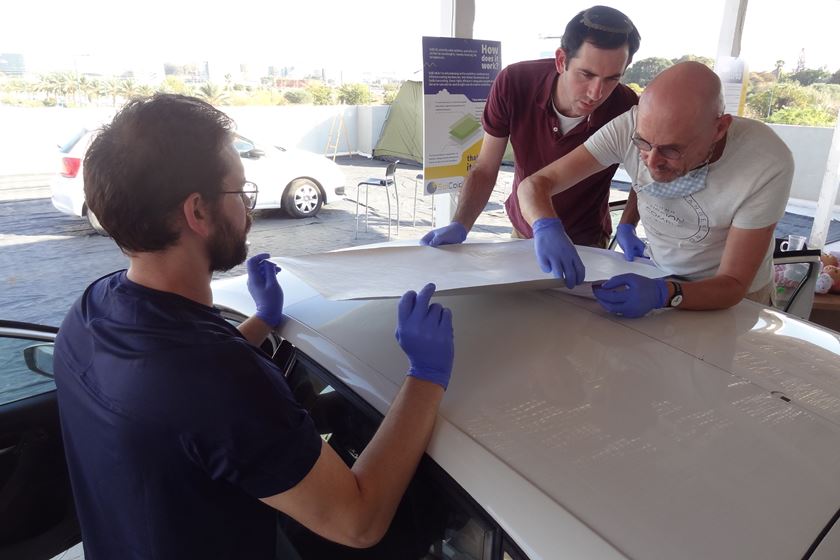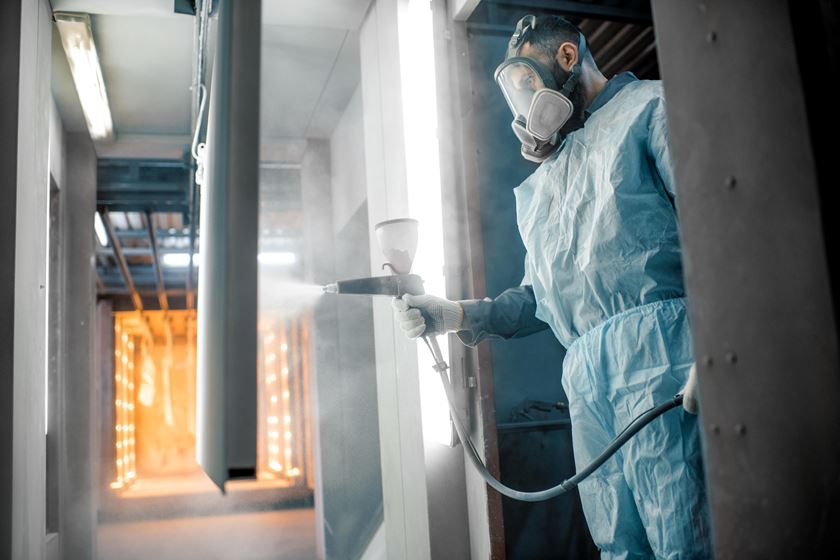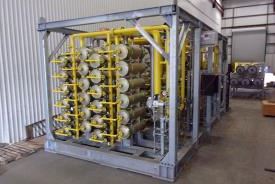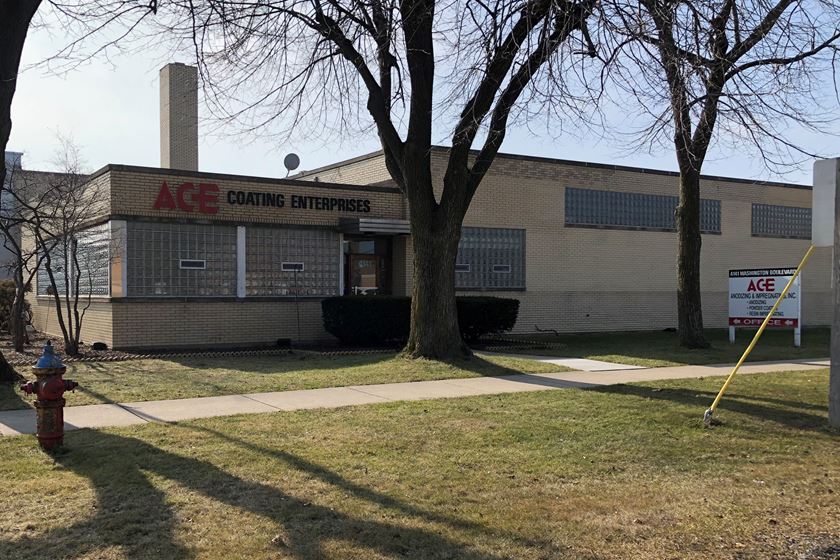Burton Rising From the Ashes
Burton Metal Finishing in Columbus rebuilds after fire.
#pollutioncontrol #masking
It was getting late on Oct. 4, 2013. Burton Metal Finishing in Columbus, Ohio, had closed for the day, all the employees were long gone, and—as many shop owners find themselves—Scott Burton was still on the phone with a customer.
He was too busy discussing specs for a new job to notice the white smoke seeping in under his office door. He had smelled something burning, but that wasn’t too unusual in his company’s neighborhood.
It wasn’t until Burton heard the phone line crackle and then go dead that he noticed anything was wrong. The fire that was ravaging his shop had burned through the phone lines.
When he opened his office door, black smoke poured in and knocked him over, whipping around like a tornado.
“Totally dark,” Burton says of that moment. “I couldn’t see a thing. It was just like in the movies. I turned on the flashlight on my phone, and nothing. I hit the floor and started crawling to the exit.”
Fire officials later told Burton and his family—Burton’s brother Dan is company president and his sister Victoria is the CFO—that the fire probably started when an employee tossed a cigarette into the compressor room trash. They found about a dozen butts in the trash; it had been a fire just waiting to happen.
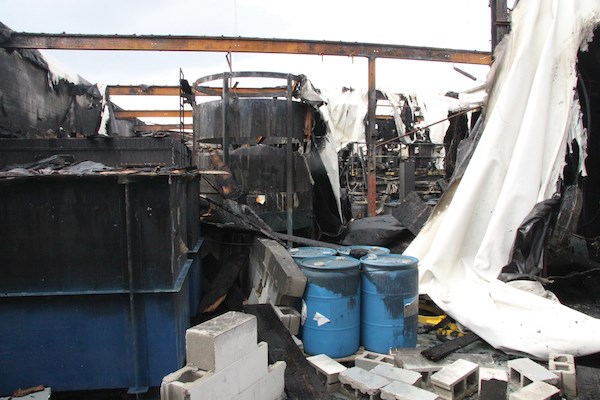
Immediately after the fire.
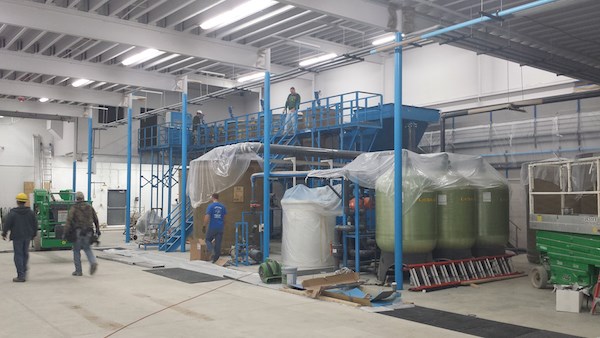
The rebuilding.
Burton escaped the fire that day, but not before going back in to retrieve his nightly deposit and a few accounting books, something the fire department gave him holy heck about when they rescued him from a side window through the billowing smoke.
“It hit me at that instant that this was a major fire and that any money I could grab or any paperwork I could get, I would,” Burton says. “Things just race through your mind like crazy.”
That was more than 15 months ago. In February, Burton Metal Finishing opened its doors again. They had rebuilt the plating lines and the wastewater treatment system, and now it was time to rebuild their customer base.
Luckily, Burton had continuation insurance that allowed him to keep many of his employees on the payroll while he worked through the maze of red tape and regulations to get his shop back up again.
He updated his insurance each year—usually in September, a month before the fire—and thought he had everything covered. There was about $250,000 in the insurance plan for code upgrades that would be needed if disaster struck, but Burton quickly found out that he was woefully short.
“Upgrades cost us over $1.3 million,” Burton says. “This was almost a 60-year-old building, so everything needed to be upgraded … wiring, plumbing, you name it.”
The building department and OSHA came in daily to tell Burton what needed to be done. Some of the costs staggered him. He was told he needed seven eye wash stations installed, each using tempered water. That bill alone was close to $70,000.
But the hardest part, according to Burton, was the continual permit delays that pushed back construction for weeks and months. Burton planned a summer 2014 opening, and that was pushed back. A planned fall opening in October—one year after the fire—came and went.
In the meantime, Burton and his family and their employees persevered. Burton worked out of a small shed in the parking lot, sitting on a picnic table his daughter had given him and trying to administer the reconstruction with the help of Dan, Victoria and others.
After the fire, the insurance company offered the Burton family a settlement if they would walk away from the company and call it quits instead of rebuilding. They said no to that very quickly.
“Our dad, Dallas, started the business, and we just couldn’t walk away,” Burton says. “More importantly, we have 40 employees counting on us. They have families, too. We knew we would come back.”
Ironically, Burton Metal Finishing is now one of the most advanced plating and powder coating shops around. The equipment and furnishings have been upgraded, new processes put in place, and even the line managers have been upgraded with tablet computers to help them monitor operations from anywhere in the shop.
“It’s bittersweet that we have improved so much, especially in our waste treatment system,” Burton says. “I don’t wish [what happened to us] on anyone. But we survived this, and we’ll be here for years to come.”
RELATED CONTENT
-
Plating Q&A: Can you color stainless steel?
Our expert, Art Kushner, says yes, you can color stainless steel, but it is not a process that is typically performed in a plating shop. Read more about his answer.
-
Recovery/Recycling Methods for Metal Finishers
A guide to lowering pollution and recovering valuable process constituents.
-
8 Things You Need to Know About Paint Booth Lighting
Global Finishing Solutions has come up with some helpful insights on lighting for paints booths which plays a crucial role in achieving a quality paint job.











